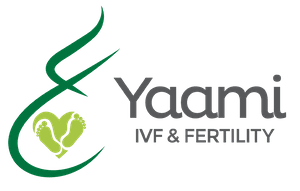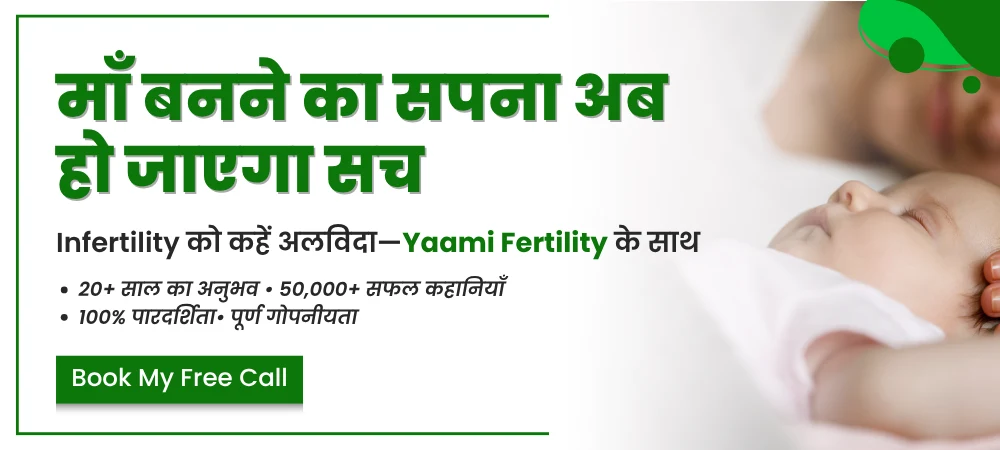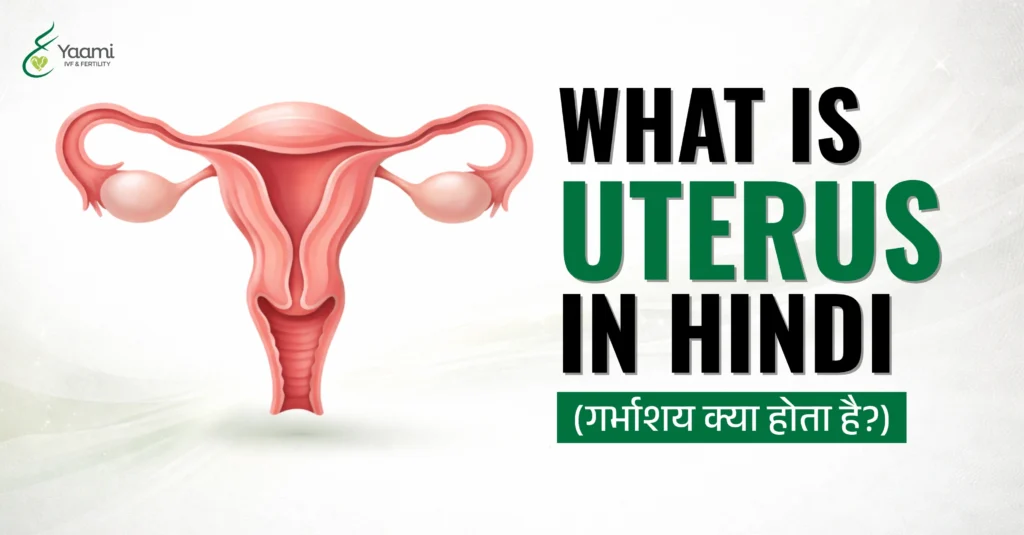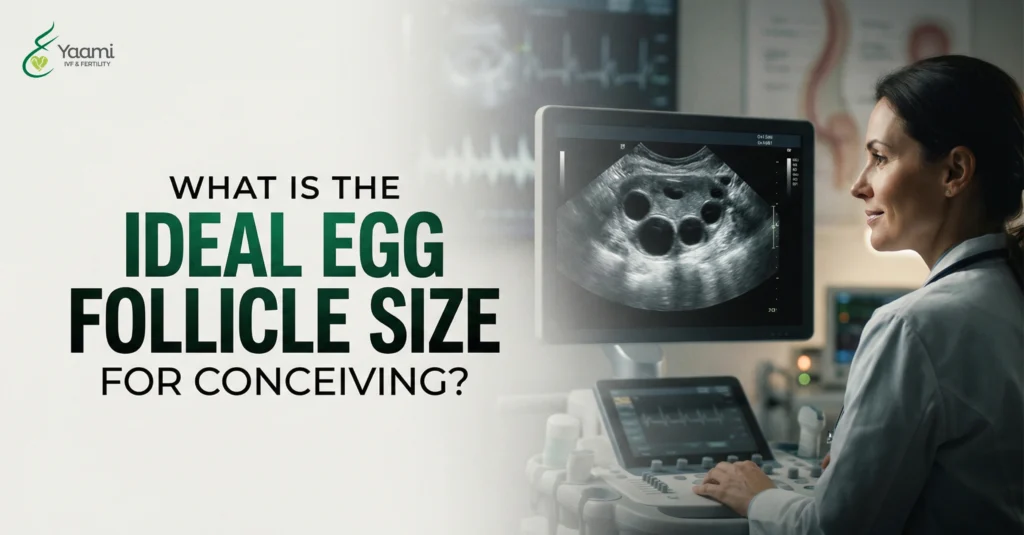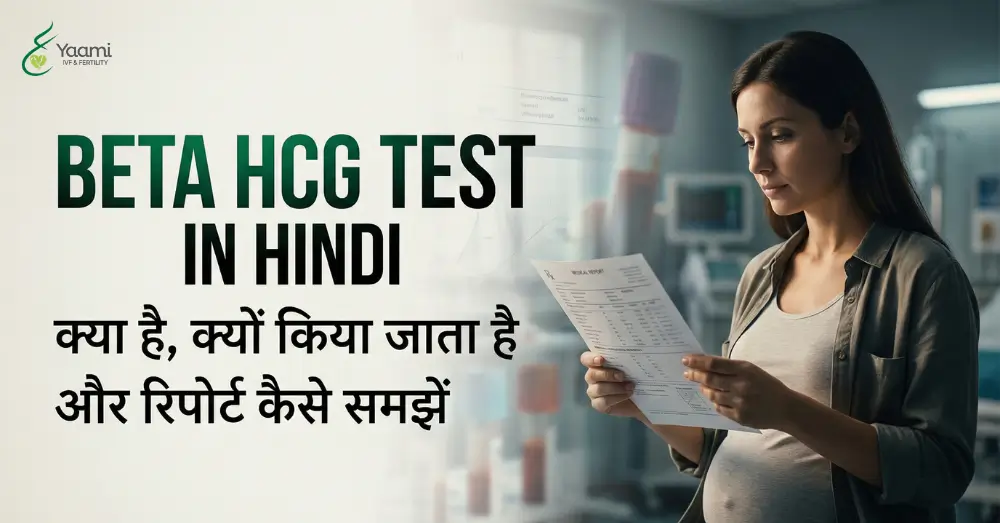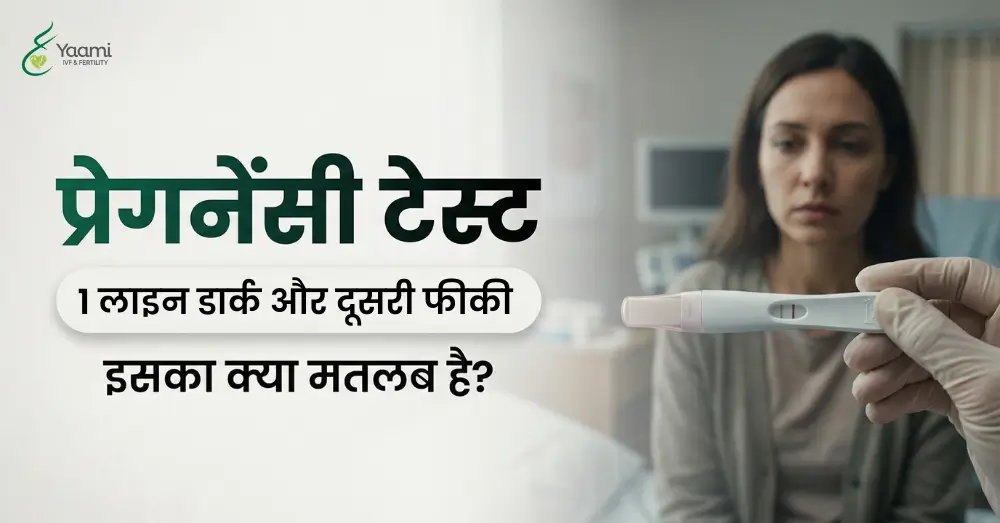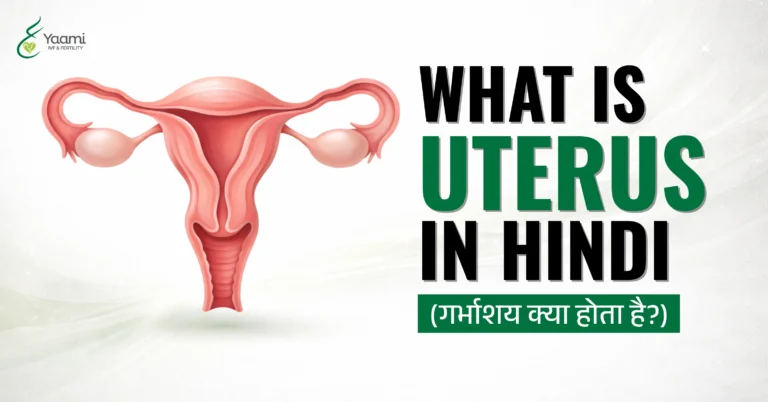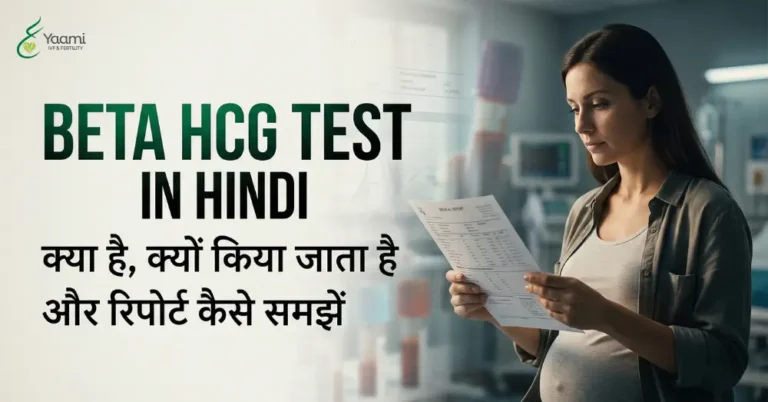The number of injections in IVF varies, typically ranging from 22 to 35 injections per cycle . This includes ovarian stimulation (10-14 days), ovulation prevention, the trigger shot, and post-transfer progesterone support, with daily injections during stimulation and post-transfer for pregnancy support.
“How many injections for IVF treatment?”- this is the question that comes to the mind of every couple going through an IVF journey.
According to Dr. Swati Singh, MBBS, MD, DNB, FRM, DRM(Germany) and the fertility expert at Yaami IVF and Fertility Center, women have a huge fear of injections, and they often ask these kinds of questions during their IVF journey.
However, how many injections for IVF treatment are required can vary significantly for an individual, depending on the specific treatment protocol and how the patient’s body responds to the medication.
However, it has also been observed that when couples are well-informed about their journey and treatment steps, they become more confident.
Therefore, for every couple going through an IVF journey, this blog will become a guide, covering how many injections for IVF treatment are, when they’re given, and how you can handle them easily.
So, let’s start!
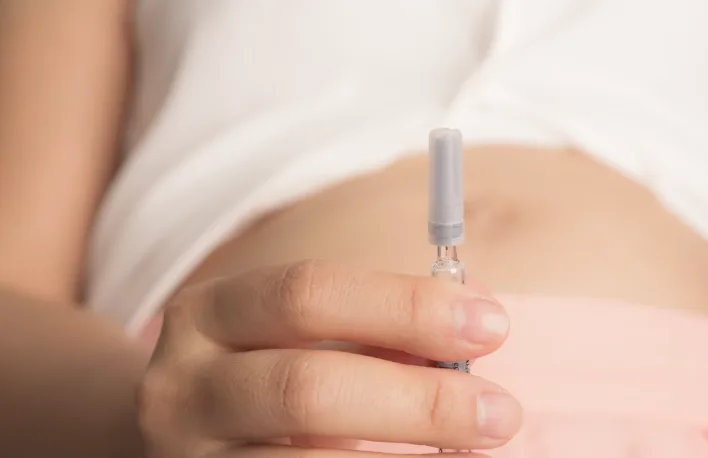
Types of IVF Injections
Since IVF is a journey, it includes a lot of steps to help you become a parent, and for every step, there is a defined process and guidelines, which include injections as well. Let’s understand how many injections for IVF treatment and what type of injections are given during the IVF process.
1. Hormone Stimulation Injections:
As the name suggests, these injections help a woman’s ovaries in producing multiple eggs at a time. These injections contain primarily two types of hormones: one is FSH (Follicle Stimulation Hormone), and the other is HMG (Human Menopausal Gonadotropin).
These injections are typically given daily, and the main goal of these injections is to encourage the ovaries to generate more eggs.
2. Ovulation Prevention Injections:
Ovulation prevention injections are given to make sure your eggs don’t get released too early. In this course, patients are given GnRH agonists or antagonists. These injections temporarily pause your body’s natural hormone signals, giving complete control over the woman’s hormonal cycle.
3. Trigger Shot:
The trigger shot is not the daily injection; rather, it is a time-specific injection of HCG (Human Chorionic Gonadotropin), which is administered a few hours (30-36 hours) before egg retrieval. It is called a trigger shot because it triggers the final maturation of eggs and prepares them for retrieval.
4. Support Injections:
After the embryo transfer, women are also given progesterone injections to help prepare the uterine lining and support pregnancy.
How Many Injections for IVF Treatment are done?
However, the number of injections for IVF treatment depends on your specific protocol; we can break it down by cycle to gain a basic understanding.
1. During Ovarian Stimulation (8-14 days):
The ovarian stimulation process includes the largest number of injections. During this period, you will be given at least 1-2 hormone injections daily to stimulate your ovaries. We can also understand it this way: if your stimulation lasts 10 days and you are suggested to take 2 injections daily, then it will be a total of 20 injections in this phase. However, the number of injections might increase or decrease depending on your ovarian stimulation days.
2. Ovulation Prevention Injections:
Depending on your condition, doctors might also suggest that you receive daily injections to prevent early ovulation. These injections are usually given during the days of your stimulation cycle and continue until your trigger shot. Which means around 5-8 more injections in your total count.
3. The Trigger Shot:
The trigger shot is just one injection, but the timing is very important. Trigger shot is given 34-36 hours before your egg retrieval procedure.
4. Post-Transfer Support:
To enable pregnancy after the embryo transfer, women require progesterone support. This means daily injections for at least 10-14 days, and if you become pregnant, these might continue for several more weeks.
If talking about the Yaami Fertility Center, patients here typically receive 22-35 injections per cycle.
How Long Are IVF Injections Given For?
IVF injections are typically administered for 8 to 14 days during the ovarian stimulation phase of each IVF cycle, but the exact duration for IVF injections can vary depending on individual response to the medication and the specific protocol used.
What is the Cost of IVF Injections?
However, the cost of IVF injection depends on several factors, such as the city in which you are taking your treatment, the clinic, and specific medications for your unique case.
But getting an idea of the financial aspect will certainly help you plan better.
Let’s take a closer look at the approximate cost of IVF injections.
1. Stimulation Medications:
The stimulation medication is the most crucial and expensive part of IVF injections. According to Dr. Swati Singh, experts advise imported medications like Gonal-F, Follistim, or Menopur, which can cost around Rs 45,000 to Rs 90,000 per cycle.
On the other hand, if the patient is given generic or Indian-made medications, then the cost may be reduced.
2. GnRH Medications:
GnRH agonists or antagonists are used to prevent premature ovulation and to coordinate the cycle. These injections are included in the overall stimulation process, but in a few specific cases, some additional dose can be recommended, costing around Rs 5,000 to Rs 15,000 per cycle.
Ovulation prevention medications can cost you around.
3. Trigger Shot:
The hCG trigger shot typically costs Rs 2,500 to Rs 5,000 per injection.
4. Progesterone Support:
Daily progesterone injections cost around Rs 10,000 to Rs 25,000 per cycle, which means if this process lasts for 10-14 days, it will cost you around Rs 700 to Rs 1800 per day.
Benefits of taking IVF Injections
You might think that IVF treatment is full of medications and injections, but each injection provides crucial benefits that collectively improve your chances of pregnancy success.
1. Multiple Egg Development:
In a natural cycle, your body typically releases just one egg per month. IVF injections stimulate your ovaries to develop multiple follicles, resulting in 8-15 mature eggs. It increases the chance of overall IVF success by providing more options for creating embryos.
2. Precise Timing Control:
IVF injections also help in controlling the time of egg maturing and ovulation so that the eggs can be retrieved at the precise timing.
3. Better Egg Quality:
Controlled ovarian stimulation often produces higher-quality eggs than natural eggs. IVF injections support hormones to ensure
4. Flexible Treatment Options:
IVF injections allow doctors to customize treatment as per the specific case of the patient. For example, for women with PCOS, doctors use gentler stimulation to avoid overstimulation. On the other hand, for women with low ovarian reserve, doctors use higher doses or different medication combinations.
Common Side Effects of Taking IVF Injections
Understanding the common side effects of taking IVF Injections can significantly help you prepare and manage them effectively.
1. Injection Site Reactions:
The most common side effect caused by any injection is mild discomfort at the injection sites. You might experience small red bumps, little swelling, or tenderness. However, this issue might resolve within a few days, but to avoid discomfort, you can apply ice to the injection site and keep rotating it.
2. Hormonal Side Effects During Stimulation:
During the IVF process, patients are given a lot of hormonal injections to support pregnancy. But, as the hormonal level rises, women also might experience bloating, breast tenderness, mood swings, or fatigue. These symptoms are similar to strong PMS (pre-menstrual syndrome) and typically last only during the stimulation phase.
3. Ovarian Hyperstimulation Syndrome:
OHSS, ovarian hyperstimulation syndrome, is a more serious symptom that is seen after the IVF injections. Its symptoms include severe abdominal bloating, rapid weight gain, and difficulty breathing. However, these symptoms are rare and seemingly affect only 2-3% of cases, but understanding can help you prevent this.
4. Emotional Effects:
The side effects of IVF injections are not limited to physical; they affect you mentally and emotionally as well. Hormonal changes and treatment stress can collectively affect your mood. Many patients experience anxiety, irritability, or emotional sensitivity.
Women can’t get rid of the side effects completely, but they can be managed with proper guidance. Dr. Swati Singh says, ‘We teach patients techniques to minimize side effects: proper injection techniques, when to apply ice or heat, special dietary recommendations during stimulation, and stress management strategies.’
As every patient has its unique medical condition, it is tough to tell the exact number for how many injections for IVF treatment, but typically 20-40 injections are spread over several weeks.
Injections during IVF treatment are not just necessary steps- they are the crucial pathway to achieving your dream of parenthood. Each injection brings you closer to holding your baby.
If you are considering IVF treatment, don’t let fear of injections hold you back. Schedule a consultation with the expert team of Yaami Fertility Center to get more clarity and support to make your parenthood dream possible.
FAQs: How Many Injections for IVF Treatment are required?
1. Can IVF be done without injections?
IVF cannot be completed without injections because each injection takes you one step closer to your parenthood dream. These specific medications don’t work properly and are not effectively absorbed when given orally.
2. How many shots for 1 round of IVF?
One complete IVF cycle typically requires 20-40 injections total. This includes daily stimulation injections (8-28 shots), ovulation prevention injections (5-8 shots), one trigger shot, and progesterone support (10-20 shots). The exact number depends on how long each phase lasts.
3. What are the 5 stages of IVF?
The 5 main stages of IVF are:
1. Ovarian stimulation with daily injections (1-2 weeks)
2. Egg retrieval procedure (1 day)
3. Fertilization and embryo development (3-6 days)
4. Embryo transfer (1 day)
5. Luteal phase support with progesterone (2+ weeks)
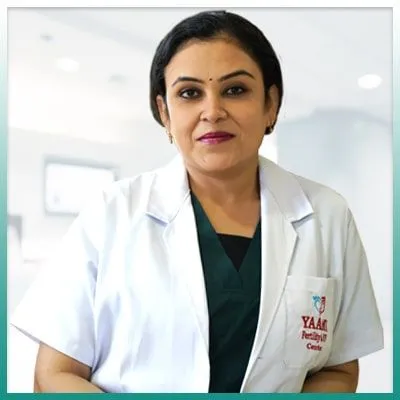
Dr. Swati Singh (MBBS, MD – Obstetrics & Gynecology, DNB, FRM, Diploma in Reproductive Medicine and Embryology – Germany) is a leading Infertility Specialist and Gynecologist with over 18 years of experience. As Co-Founder and Senior Consultant at Yaami Fertility & IVF Center, Indore, she offers advanced fertility care including IUI, IVF, ICSI, and management of female reproductive disorders. Known for her compassionate and patient-first approach, Dr. Swati combines global training with deep clinical expertise. She is also actively involved in women’s health advocacy, medical research, and promoting awareness about reproductive wellness and fertility treatments.
